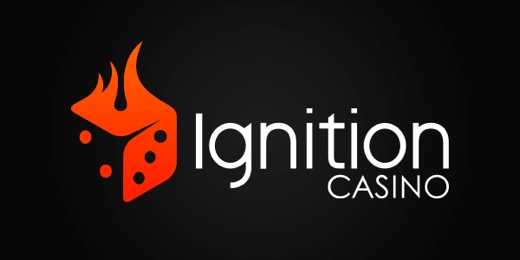-
#4Comprehensive, engaging online poker experience#5Versatile, international online poker rooms
Dominating the world of poker, Texas Holdem Poker is a must-learn game for any enthusiast. Aimed at both rookies and experienced players, this article cuts through the chatter to deliver solid strategies and practical tips for creating winning hands. With no fluff, you’ll uncover the essentials of Texas Holdem Poker gameplay and tactics to improve your chances at the tables, both online and offline.
Table of Contents
Key Takeaways
- Texas Hold’em is a popular poker variant that combines skill, strategy, and luck, emphasizing the importance of hand rankings, betting rounds, and understanding the interplay between private hole cards and community cards.
- Online Texas Hold’em gambling sites offer a range and flexibility of experiences, from cash games to tournaments, and emphasize the importance of responsible play to ensure a sustainable and enjoyable poker journey.
- Mastering Texas Hold’em strategy involves understanding position and aggression, reading opponents, and effectively bluffing, while also staying informed through poker tools, apps, and educational resources.
Dive Into Texas Hold’em Poker
Step into the electrifying world of Texas Hold’em Poker, where strategy, skill, and a bit of luck intertwine to create an unparalleled poker game experience. As the most popular poker variant, Texas Hold’em is a staple in casinos and online poker rooms worldwide, captivating players with its dynamic gameplay and potential for high-stakes action.
From the casual free poker nights to the high-pressure final tables of the WSOP Main Event, Texas Hold’em offers something for everyone. Mastering the game begins with understanding its objectives: to secure the pot by either holding the best hand at showdown or by outwitting your opponents into folding. With a standard 52-card deck and without the complexity of wild cards, Texas Hold’em poker maintains a purity that appeals to purists and newcomers alike.
Texas Hold’em Basics
Your journey into Texas Hold’em begins by grasping the basics. Each player is dealt two private hole cards face down, the strength of which can determine the trajectory of the entire hand. As the hand unfolds, five community cards are revealed in stages—flop, turn, and river—allowing players to weave these with their hole cards to construct the most robust five-card poker hand possible. It’s a dance of patience and strategic selection; do you play those suited connectors or wait for a stronger starting pair? The answer lies in the community cards, dealt face up, that provide a canvas for players to paint their winning strategies.
Understanding the rhythm of the game is just as important. Each hand begins with players assessing the two private cards in their possession, deciding whether to enter the fray or wait for a more favorable opportunity. As the community cards enter the mix, the canvas of possibilities expands, revealing chances to secure that elusive winning hand. Whether you’re playing poker online or at a live table, the thrill of combining hole cards and community cards to form a victorious five-card hand is a universal highlight of the game.
The Betting Rounds Explained
The heart of Texas Hold’em lies in its betting rounds—pre-flop, flop, turn, and river—each offering a stage for players to make strategic bets or fold their way out of a precarious situation. The dance of decision-making begins with the pre-flop, where players can either:
- check
- call
- raise
- fold
In poker, players make decisions based on their initial hole cards of the same suit.
As play proceeds to the flop, turn, and final betting round on the river, the strategic depth of Texas Hold’em shines through. It’s here that players size up their opponents, weighing the potential strength of their hands against the betting action on the table.
Gaining proficiency in each betting round is a stepping stone to success in Texas Hold’em. With the power to control the pot size, players must make calculated decisions to protect their chips or push their advantage. Whether it’s a small bet to keep the pot manageable or an aggressive raise to chase weaker hands out, each betting action can dramatically shift the tide of the game.
Hand Rankings in Texas Hold’em
Comprehending hand rankings in Texas Hold’em is akin to mastering the alphabet before penning a novel. From the humble high card to the illustrious straight flush, the hierarchy of hands guides a player’s fate at the table. At the showdown, the player wielding the highest-ranking hand that hasn’t folded claims the pot, or in cases of a tie, the pot is split equally among those holding the top hands. This simple yet critical knowledge forms the foundation of every strategy and decision a player will make.
Even with the same rank, intricacies such as suit differences and kicker cards can turn the tide, making the understanding of hand rankings a continuous learning process. Whether it’s a battle for the strongest five-card poker hand or a strategic fold to live another day, the rank of your hand is the compass that guides your journey through the unpredictable waters of Texas Hold’em poker.
Texas Hold’em Online: Where to Play
As the digital era flourishes, the online poker landscape has never been more vibrant. Renowned poker rooms like Ignition Casino, Bovada, and BetOnline beckon, offering immersive Texas Hold’em experiences from the comfort of your home. These top sites are a haven for poker enthusiasts, each providing a unique arena for testing and honing poker skills in their respective poker room.
And with the likes of EveryGame and ACR Poker also in the mix, players are spoilt for choice, each platform teeming with opportunities to engage in most poker games, including the most popular poker variant and other poker games.
Finding Your Table
Selecting the perfect table is akin to choosing the right battlefield. In the world of online poker, players can decide between the immediacy of cash games and the grandeur of tournaments, each catering to different styles and preferences. Cash games, with their flexibility to join and leave at will, offer a controlled environment where one can manage the pace and intensity of play. For those seeking a more structured and potentially rewarding challenge, online poker rooms host a variety of tournaments, from fast-paced Sit and Go’s to sprawling multi-table contests, ensuring that players of all skill levels can find their niche.
Choosing the right game format is not just about preference; it’s about aligning your poker goals with the experience that best suits your style. Whether you’re in the mood for a laid-back cash game session or the thrill of outlasting hundreds in a tournament, the choice you make can greatly influence your enjoyment and success at the virtual felt.
Playing Poker Responsibly
The allure of Texas Hold’em is undeniable, but playing poker responsibly is the cornerstone of a sustainable and enjoyable poker journey. Establishing a bankroll that reflects what you’re willing to risk is the first step in responsible play. For cash game enthusiasts, a stable bankroll is maintained by choosing stakes that allow for at least 20 buy-ins, cushioning the inevitable swings of the game. Setting personal boundaries, such as a minimum bet or a two-buy-in limit per session, can protect your bankroll from the emotional rollercoaster of winning streaks and downturns alike.
Responsible play also extends to the mental and emotional aspects of the game. It’s about knowing when to step away, when to push forward, and how to handle the highs and lows with equanimity. By managing your bankroll and setting clear boundaries, you empower yourself to enjoy the game for the long haul, ensuring that Texas Hold’em remains a source of challenge and excitement, not stress.
Mastering Texas Hold’em Strategy
Exploring the strategy of Texas Hold’em is akin to setting out on a pursuit for the Holy Grail; it’s a pursuit of poker perfection where every move counts. Mastering the game requires a blend of understanding pot dynamics, predicting opponents’ hands, and adapting to tournament intricacies. The journey from novice to seasoned pro is marked by learning when to wield aggression and when to exhibit restraint, with success often hinging on a player’s ability to balance these approaches effectively.
Embrace the challenge of multi-way pots, refine your gameplay with advanced analytical tools, and immerse yourself in the wealth of educational resources that 2026 has to offer.
Position and Aggression
In the realm of Texas Hold’em, position holds paramount importance, casting a spotlight on those seated later in the betting order. With the benefit of observing others’ actions, players in late positions can make more informed decisions, wielding this information to steer their strategic choices. The power of position allows one to gauge the potential strength of opponents’ hands, shaping both the player’s perceived hand strength and their approach to the game.
The benefits of late position include:
- Making more informed decisions based on observing others’ actions
- Gauging the potential strength of opponents’ hands
- Shaping the player’s perceived hand strength and approach to the game
Hand selection, a crucial skill in poker, is heavily influenced by this dynamic; while strong pocket pairs are evergreen, speculative hands gain value when played from the vantage point of late position.
Aggression, when harnessed correctly, becomes a formidable force in Texas Hold’em. Sensing weakness and striking with a well-timed bet can rattle opponents, forcing them to face tough decisions that could lead to their downfall. Tactics like bluff raising on the flop and betting after a scare card can shift the momentum in your favor, demonstrating the power of aggression combined with strategic positioning. However, it’s crucial to avoid passivity, as excessive limping or calling can signal vulnerability to sharks circling the felt.
Reading the Opponents
Deciphering opponents in Texas Hold’em is a mix of psychological insight and strategic acumen, where keen observation unlocks the secrets hidden in betting patterns and table behavior. By recalling how players react to aggression or fold under pressure, you can craft your own approach to induce the outcomes you desire, utilizing bluffing as a strategic tool against the more timid foes. The river presents a prime opportunity for bluffing, especially against opponents known to back down when faced with a convincing narrative.
While some players attempt to pinpoint the exact holdings of their adversaries, the concept of ‘ranges’ provides a more pragmatic approach. Thinking in terms of ranges involves categorizing similar hands together, simplifying the process of deducing what categories of hands your opponents might possess and how they are likely to play them.
Bluffing and Tells
Perfecting the skill of bluffing is comparable to mastering a magician’s deception; it’s an essential element that adds depth and intrigue to the game of poker. Poker tells, those involuntary cues that betray a player’s hand strength, are the subtle nuances that can offer a glimpse into an opponent’s state of mind. From eye contact patterns to the timing of actions, these tells can provide valuable insights into a player’s level of confidence in their hand.
Implementing effective bluffing strategies, such as light 3-bets pre-flop or carefully selected 4-bet bluffs, can exert pressure on opponents, compelling them to make difficult decisions that could lead to your gain. Recognizing and interpreting poker tells, while not an exact science, can provide an edge, helping you decipher the hidden language of poker and turn the tides in your favor.
Texas Hold’em Variations and Formats
Texas Hold’em, also known as hold em, is far from being monolithic; it flourishes across diverse formats and variations, each with its own strategic landscape. From the measured approach of pot limit games to the high-octane thrills of no-limit showdowns, players can find a format that resonates with their style and risk tolerance, including stylized texas holdem experiences in texas hold em tournaments.
Explore the nuances of these formats and embrace the unique challenges they present, allowing you to broaden your poker repertoire and adaptability.
Pot Limit vs. No-Limit Texas Hold’em
Pot Limit Texas Hold’em is a game of precision and calculation, where players are confined to raising up to the size of the pot. This format demands a deeper understanding of pot odds and the potential returns on bets, fostering a more strategic and contemplative style of play. The constricted betting limits of pot limit games often lead to longer, more intricate hands, reducing the risk of catastrophic losses in a single round.
In contrast, No-Limit Texas Hold’em is the playground of the bold, where players can:
- bet any amount of their chips, up to going all-in, at any point in the hand
- make larger pots
- engage in more aggressive play
- experience dramatic swings in fortune
This heightened level of play and potential for excitement makes No-Limit Texas Hold’em a thrilling game.
Tournament Play
Tournament play in Texas Hold’em presents its own set of challenges and strategies that differ from cash games. As players navigate through the different stages of a tournament, maintaining bankroll stability is key, with the recommendation to limit tournament buy-ins to a maximum of two percent of the total bankroll. Tools like ICMIZER 3 offer a mathematical edge, providing optimal push-fold strategies to maximize your chances of success in tournament scenarios.
The prestige of winning a WSOP bracelet or ring cannot be overstated; it’s a symbol that represents not just skill, but also the dedication and perseverance that are hallmarks of successful poker players. These accolades are dreams for many, and for the fortunate few who achieve them, they serve as enduring testament to their place in poker history.
Essential Texas Hold’em Tools and Resources
In the constantly changing terrain of Texas Hold’em, players are equipped with a wealth of tools and resources to hone their skills. From software that analyzes hand histories to apps that simulate countless scenarios, these tools are at the forefront of modern poker training, empowering players to evolve their strategies and decision-making processes.
Poker Software and Apps
In the era of digitalization, utilizing poker software and apps is comparable to a warrior gearing up for a fight. Some of the top tools for poker players are:
- PokerTracker 4: a robust platform for hand history analysis and the customization of HUDs to glean real-time insights into gameplay.
- Holdem Manager 3: renowned for its user-friendly interface that simplifies session tracking and HUD creation, providing a seamless experience for users.
- Equilab: with its straightforward equity analysis, allows players to dissect their hands, understanding the odds and making more informed decisions at the table.
These tools, including poker chips, can greatly enhance a player’s poker experience and improve their gameplay.
The use of these tools is not just about gaining a competitive edge; it’s about deepening one’s understanding of the game. By analyzing past hands, players can identify patterns in their play, recognize mistakes, and uncover opportunities for improvement. The PokerNews Odds Calculator, for instance, offers real-time calculations that can be instrumental in refining in-game decision-making, ensuring that every move is backed by solid data and analysis.
Educational Material
Beyond software and apps, the world of Texas Hold’em abounds with educational material designed to elevate a player’s game. Interactive tools like quizzes and poker math workbooks provide a hands-on approach to learning, challenging players to apply concepts in simulated scenarios. Online training courses offer in-depth instruction, guiding players through the complexities of preflop and post-flop strategies with the nuanced detail required for mastering the game.
In this ever-changing game, continuous learning is key. From forums to Discord servers, Texas Hold’em communities offer vibrant platforms for strategy discussions and knowledge sharing. Engaging with fellow enthusiasts, sharing experiences, and dissecting the latest poker content can lead to breakthroughs in understanding and skill. These communities foster a collaborative learning environment, where the collective wisdom of many contributes to the growth of the individual player.
Maximizing Free Poker Opportunities
Free poker platforms offer several benefits for players:
- They act as a productive training arena for players aiming to refine their skills without the stress of betting actual money.
- These play money games and freeroll tournaments are invaluable for experimenting with strategies.
- They provide an opportunity to gain experience in a risk-free environment.
By engaging in these free offerings, players can build confidence and prepare themselves for the stakes of real-money games.
Free Online Poker Games
Platforms like Ignition Casino and the WSOP Poker App offer an array of free Texas Hold’em games that mirror the dynamics of their real-money counterparts. With features such as quick seat options and detailed hand histories, these games provide a comprehensive poker experience without the financial risk. Freeroll tournaments sweeten the deal, granting players the chance to compete for real prizes, including money and tournament tickets, while bypassing the need for a buy-in.
For newcomers to the poker scene, freerolls and free games are the perfect starting points. Sites like GGPoker and ClubGG Poker not only offer these opportunities but also serve as gateways to the wider world of Texas Hold’em, allowing beginners to progressively build their bankroll and skills. As players grow more adept, these platforms can become stepping stones to higher stakes and more competitive poker environments.
Bonuses and Promotions
The allure of online poker is further heightened by the myriad of bonuses and promotions that poker sites offer. Initial deposit bonuses can serve as a significant boost to a player’s bankroll, with some sites generously matching or even tripling the first deposit. These deposit bonuses often come with a certain percentage match, sometimes as high as 150%, providing players with extra resources to extend their play and potential winnings.
Rakeback promotions are another gem in the online poker world, returning a percentage of the rake collected during play. This can significantly enhance the value of the poker experience, providing a steady stream of returns that reward consistent play. For example, platforms like SportsBetting.ag incentivize player activity with weekly rake-based prizes, motivating players to remain active on their site.
Additionally, some sites offer promotions that grant tournament tickets to players, allowing them to enter competitive poker tournaments without additional cost, thereby offering a pathway to potentially substantial winnings.
Interactive Texas Hold’em Communities
The tapestry of the Texas Hold’em landscape is intricately interwoven with the threads of its vibrant communities. Online forums and Discord servers pulsate with the energy of players eager to discuss strategies, share their triumphs and setbacks, and access the latest poker content. This camaraderie and collective knowledge are invaluable, as they not only enhance the learning experience but also offer moral support during the inevitable ebbs and flows of a poker career.
Summary
As the final chips are counted and the last hand is played, the journey through the world of Texas Hold’em Poker comes to a close. From the fundamental principles to the subtle art of bluffing, from selecting the right online platform to joining vibrant communities, this guide has traversed the full spectrum of what it takes to thrive in the game. Embrace these insights and strategies, and let them guide you to countless winning hands and the pure joy that comes from mastering one of the most exhilarating games in the world.
Frequently Asked Questions
What are the basic rules of Texas Hold’em Poker?
In Texas Hold’em Poker, each player is dealt two private hole cards and aims to create the best five-card poker hand from these cards and the five community cards. The game consists of four betting rounds, with the player holding the highest-ranking hand at the end winning the pot.
How do I choose between cash games and tournaments in online poker?
Consider your play style, time commitment, and poker goals when choosing between cash games and tournaments. Cash games offer flexibility, while tournaments provide a more structured competition with the potential for large payouts. Choose the option that aligns with your preferences and objectives.
What tools can help me improve my Texas Hold’em game?
You can improve your Texas Hold’em game using tools such as PokerTracker 4, Holdem Manager 3, Equilab, and PokerNews Odds Calculator for hand analysis and equity calculations, along with educational resources like quizzes and training courses. These can enhance your overall understanding and performance.
Are there any free opportunities to play Texas Hold’em Poker?
Yes, many online platforms offer free Texas Hold’em games and freeroll tournaments where you can practice and compete without financial risk. This is a great way to gain experience and build a bankroll without the pressure of wagering real money.
How can I play Texas Hold’em Poker responsibly?
Play Texas Hold’em Poker responsibly by establishing a comfortable bankroll, choosing appropriate stakes, setting personal loss boundaries, and taking regular breaks to ensure the game remains enjoyable. Managing your bankroll to minimize the impact of variance is also crucial.





